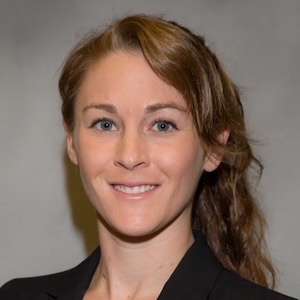Jessica Ryder
 Dr. Jessica Ryder is a board-certified emergency physician and Assistant Professor of Emergency Medicine at the University of Colorado School of Medicine. She completed her fellowship training in Operational and Disaster Medicine at Carolinas Medical Center in Charlotte, North Carolina, where her work focused on building disaster response capacity and resilience both domestically and globally. Her domestic work focuses on hospital preparedness for mass casualty incidents and emerging infectious diseases, with an emphasis on incorporating vulnerable populations into planning, education, and training exercises.
Dr. Jessica Ryder is a board-certified emergency physician and Assistant Professor of Emergency Medicine at the University of Colorado School of Medicine. She completed her fellowship training in Operational and Disaster Medicine at Carolinas Medical Center in Charlotte, North Carolina, where her work focused on building disaster response capacity and resilience both domestically and globally. Her domestic work focuses on hospital preparedness for mass casualty incidents and emerging infectious diseases, with an emphasis on incorporating vulnerable populations into planning, education, and training exercises.
She also serves as the Programs Medical Lead for Team Rubicon, a US-based humanitarian organization verified as a WHO Emergency Medical Team Type 1 mobile that serves global communities before, during, and after crises. As the Programs Medical Lead, Dr. Ryder’s deployments to Ukraine, Uganda, Niger, and Guatemala provided firsthand experiences to improve local and regional disaster response capacity through mentorship and training. She aims to strengthen and support local response capability and capacity for those impacted by natural and man-made disasters.
Dr. Ryder is the lead physician for emergency management for the University of Colorado Hospital’s Emergency Department. She is co-chair of the regional healthcare coalition. Additionally, she serves as a subject matter expert for the Mountain Plains Regional Disaster Health Response System (MPRDHRS), an Administration of Strategic Preparedness and Response (ASPR) funded collaborative effort to improve medical surge and clinical specialty capabilities during emergencies across states. She recently also took on the position of Medical Officer for the Gilpin County Public Health Department. Dr. Ryder is finishing her Master’s in Public Health with a concentration in Humanitarian Health through The Bloomberg School of Public Health at Johns Hopkins University. Her research interests include disaster response in resource-scarce environments, local context-specific education and training programs, professionalizing complex humanitarian response efforts, and medical education.